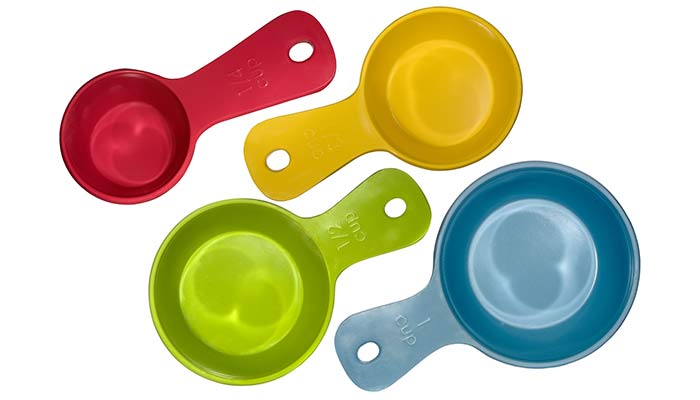
Is low vision making it harder for your loved one to cook? If food preparation has been one of their pleasures, they are probably grieving not only the change in their eyesight, but also the loss of creating and serving delicious meals. Even if cooking has not been a passion, the ability to safely prepare food for oneself is critical for maintaining independence and self-esteem.
Fortunately, there are ways to empower your relative with simple strategies and inexpensive tools. Here are some techniques that augment and use all the senses. They also protect safety.
- Lighting. Identify workstations in the kitchen that could use extra lighting. Add a flexible arm lamp to shine a spotlight on the cutting board or on the recipe.
- Color and contrast. Use a white cutting board for dark foods (carrots, beets, meat) and a dark cutting board for light-colored foods (onions, chicken).
- Touch. Buy a “tactile pen.” These exude a liquid material that dries into easily felt lines, dots, numbers, or letters. Label measuring cups, “on/off” or other settings on appliances, and key positions for stove or oven dials.
- Sound. There are several “talking” devices for visually impaired cooks. For instance, a thermometer that speaks the temperature out loud. Or a device set at the edge of a bowl or measuring cup that beeps when liquid is near the top.
- Cut prevention. Use devices other than knives whenever possible. A vegetable peeler, for instance, or a cheese slicer or tomato/onion cutter. Another tip: The sharp edge of a knife blade is usually rounded. Rock the knife on the cutting board first. If it doesn’t rock easily, the cutting edge of the blade is likely pointing up.
- Burn prevention. Position the pan on the burner before turning on the heat. Similarly, turn off the burner before removing the pan. Wear short sleeves or sleeves rolled up so clothing doesn’t brush against burners and catch fire. For baking, get long oven mitts that cover the forearms. Also, pull the rack partially out when removing food, reducing the need to reach deep into the oven.
For those with a diagnosed low-vision condition, Medicare will pay for the services of a low-vision rehabilitation specialist. With a doctor’s referral, a specialist can come to the home and help your loved one identify easy adaptations that will make cooking—and other daily life activities—safe and enjoyable again.
Is vision loss making meal prep difficult?
As the greater Cleveland experts in family caregiving, we at Careplan Care Managers know that the ability to cook for oneself is vital to an aging relative’s self-esteem. Doubly so if cooking was a joy or part of their reputation. If the person you care for is struggling with vision loss and issues of independence, we can support you in supporting them. Give us a call at 440.476.9534. You don’t have to do this alone.
